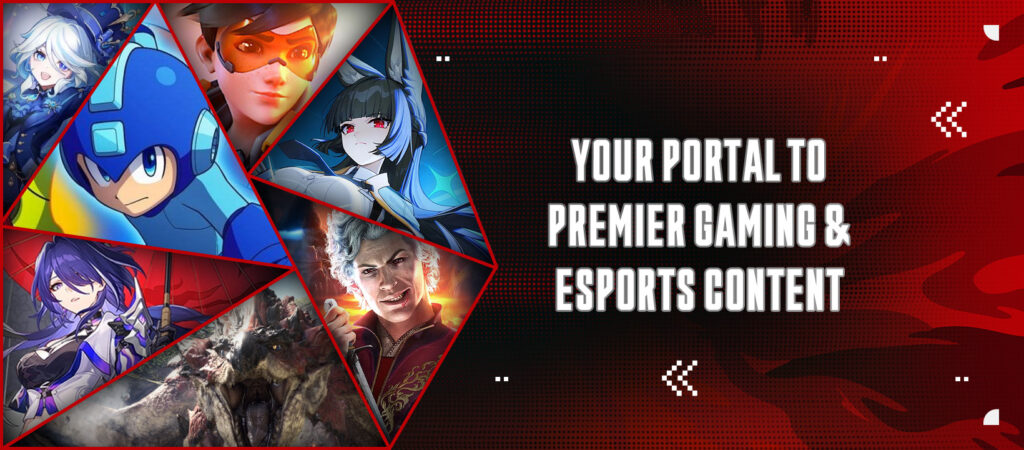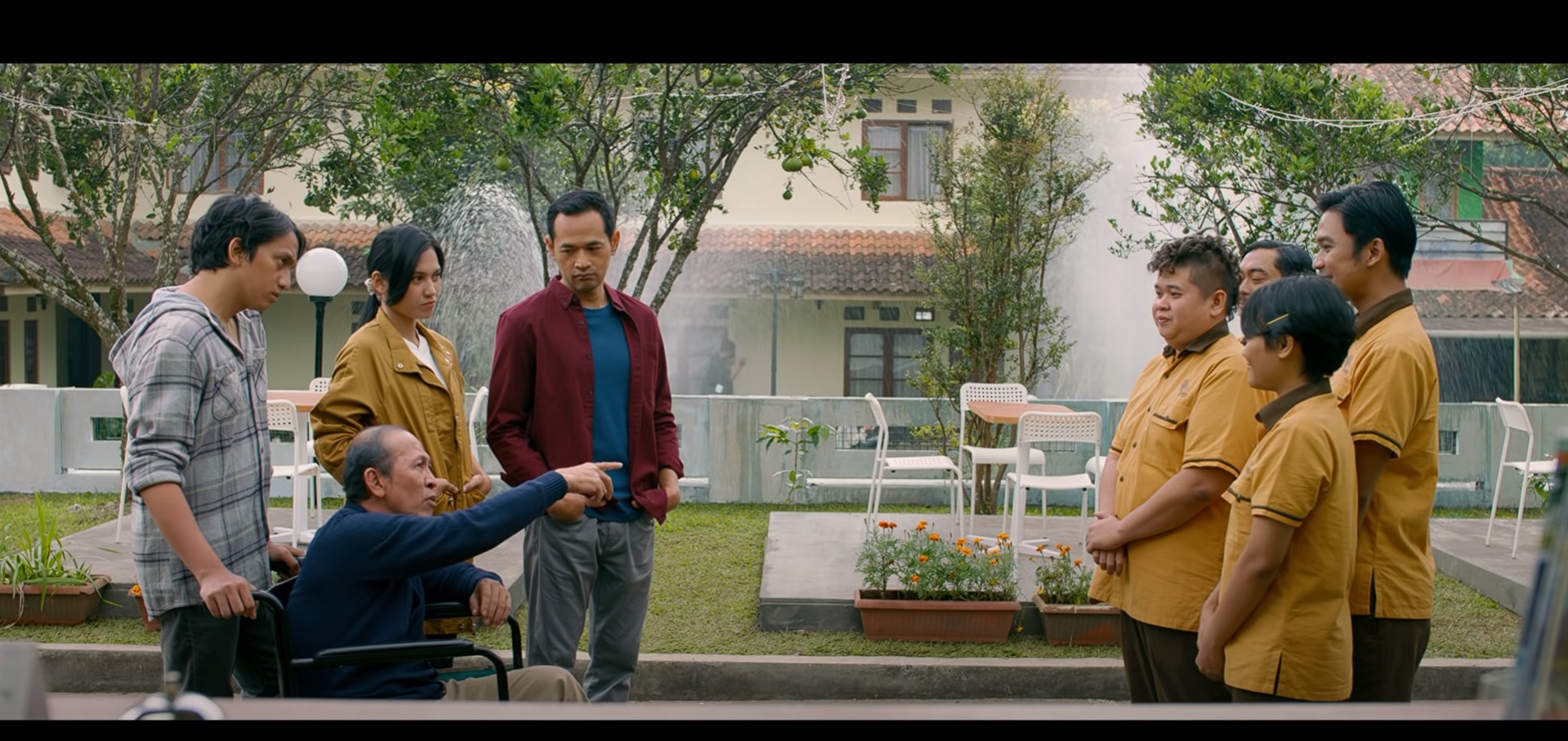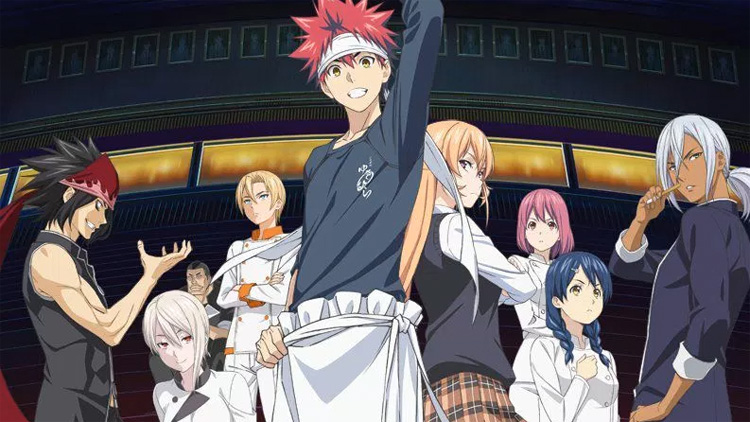In a world that is increasingly driven by digital technology and global connectivity, esports has emerged as a powerful cultural phenomenon, transcending geographical and cultural boundaries.
No longer viewed simply as a niche, esports has become a mainstream industry with a rapidly growing fanbase. It is an ecosystem fueled by passion, community, and competition where every game, every moment, has the potential to inspire and entertain millions of people around the world.
Recently, the landscape of esports content has undergone a significant transformation. The rise of short-form videos, live streaming, and interactive content has changed how audiences engage with the scene. Traditional broadcast formats are evolving into more dynamic, accessible, and community-oriented formats that foster direct interaction and real-time engagement. As content consumption continues to evolve, the potential for innovative storytelling blending analysis, entertainment, and community voices will become even more central to the industry’s growth.
Looking ahead, the potential of esports remains vast and largely untapped. With emerging markets, advancements in technology like VR and AR, and increased mainstream acceptance, the industry is poised for exponential expansion. Regions such as Southeast Asia are particularly promising, given their mobile-first audiences and strong local communities. This intersection of technological innovation and grassroots development hints at a future where esports not only entertains but also creates meaningful social connections, cultural exchange, and economic opportunities for diverse communities worldwide.
GosuGamers, as a leading global media platform, goes beyond scoreboards and highlights. In this interview, we have the opportunity to connect with Bryan Huang, Director of Growth and Strategy. Bryan Huang oversees platform expansion, content development, and strategic partnerships across the gaming, esports, and entertainment sectors. This interview with Bryan is to explore how GosuGamers is shaping a more authentic and community-driven vision of esports ranging from grassroots initiatives to the future of competitive gaming worldwide.

As a leading media content company in esports, how does GosuGamers influence public perception and awareness of competitive gaming?
Esports isn’t just about the big flashy plays, it’s also about the people. At GosuGamers, we’re interested in the moments that connect communities, not just competitions. Whether it’s a local rivalry or an international tournament, we aim to tell the stories that show how gaming brings people together, because to us, that’s what esports is really about.
Our coverage turns authentic moments into credible and engaging content that millions enjoy. Beyond that, we focus on building communities. Through platforms like GosuBattles, we give players and organisers the opportunity to experience competitive gaming firsthand. In doing so, we aim to positively shape public understanding of what esports is and what it can be.
Despite being around for years, the term ‘esports’ is still unfamiliar among the conservatives that think it is not a sport, or that ‘esports’ is just a sugarcoated word for playing video games. What do you think is the social responsibility of content companies like GosuGamers, to help esports define its narrative among various stakeholders and the public?
We still have publications that use “e-sports” or “eSports” instead of “esports”, which has been the Associated Press’ housestyle for years already. Standardising that, and making it feel like its own thing without being a derivative of “sports”, is already a big step. We believe we can move the needle further by educating through engaging, accurate, and consistent storytelling. Beyond coverage, we also create behind-the-scenes stories, documentaries, guides, and workshops, while building communities through our platforms. This human-centred approach helps make esports more relatable and better understood by wider audiences.
With the shift in how audiences consume content, how is GosuGamers adapting to newer formats to remain relevant and engaging?
We have expanded beyond traditional articles to include short-form videos, livestream highlights, data-driven stats integrations, and interactive features. Our content is structured around not just major esports game titles such as Dota 2, Mobile Legends: Bang Bang, Honor of Kings and Counter-Strike 2, we’re also actively building up our audiences in titles such as Genshin Impact, Honkai: Star Rail, Marvel Rivals and even the recently released Umamusume: Pretty Derby. Each title has its own team, allowing us to build and superserve focused communities with highly targeted content. A belief I’ve had for the longest time is that the people creating content on the games should be players of the game, and it’s something we’ve implemented at GosuGamers to ensure that our content creators understand the audiences they’re serving.
For esports, our short-form strategy surfaces the voices and moments that traditional coverage often misses – the local heroes, the unexpected plays, the community inside jokes that show esports is much bigger than what happens on the main stage. When an MLBB blooper hits 14 million views, it’s not just about reach, it’s also proof that audiences are hungry for authentic moments, not just highlight reels.
As a global content media company, how does GosuGamers view its role in supporting grassroots initiatives and community building within the esports ecosystem?
We see grassroots communities as the foundation of long-term growth, for any title, esports or not. Our role is to amplify these communities by giving them visibility, supporting their events, and providing them with the know-hows through platforms like GosuBattles and its Grant Programme. GosuBattles was built to remove the friction that usually stops people from organising tournaments. We’ve seen that when communities have the tools, they’ll create their own competitive ecosystems — with formats and rules that work for them. That’s the real vision behind both the platform and the Grant — to let good ideas grow into great experiences. And it’s not just esports titles, the GosuBattles platform supports a variety of games, and we’re constantly looking out for more partners to bring to our communities.
Do you think it is important to build relations with grassroots local communities? Why?
We’re already seeing that the future of esports won’t just be built in stadiums. It has to be shaped by small communities, passionate organisers, and local players running weekend brackets. That’s where real, sustainable growth starts. Player communities are the ones that decide which games stand the test of time.
Through GosuBattles and the Grant Programme, we’re putting tournament-grade tools in the hands of people who know their communities best – whether that’s a mobile gaming café in Manila or a university Discord server in Jakarta. Following the launch of the GosuBattles Grant Programme, we have received strong interest from community leaders and influencers in the Philippines and India. These relationships are key to building sustainable and community-driven initiatives that go beyond traditional esports.
How has GosuGamers engaged with recent social movements within the esports industry, such as gender equality and anti-bullying campaigns, and even uncouth mannerisms by gaming content creators?
At GosuGamers, we embrace diversity, and this is reflected in the content which we create, such as on International Women’s Day, celebrating women in esports and gaming. Every story we choose to spotlight is a small way of shaping what esports looks like, and we take that responsibility seriously. We also work with respectable content creators and are clear about the standards expected of them. We take this seriously because we understand that our platform is part of a wider community, especially for younger audiences who look to us for inspiration and representation.
How do you view the current growth of the esports industry in Southeast Asia, and how does GosuGamers navigate the region’s cultural, social, and political diversity in its operations and strategy?
Southeast Asia is among the fastest‑growing gaming regions globally. In 2023, the region had roughly 277 million gamers and is projected to grow to 332 million by 2028, nearly matching the current population of the United States. But, as those of us who have worked in the region know, Southeast Asia isn’t one market. It’s made up of very different player cultures, languages, and content consumption habits. We can’t, and we don’t, take a one-size-fits-all approach.
Instead, we work with local partners, creators, and communities to shape strategy and content that actually resonates. That’s what makes growth here more complex, but also more rewarding. We’re seeing that the most impactful esports movements often begin at the community level. Indonesia, for example, has a thriving mobile-first player base and a culture of local tournament organisers. That’s where we want GosuBattles to be, right in the mix, helping lower the barrier for those who want to build something real, no matter the scale.
What do you think about Indonesia’s esports industry?
Indonesia remains one of our key markets, with a vibrant and growing games ecosystem. As mentioned in the previous answer, its mobile-first audience and strong community base make it an ideal environment for grassroots development. We see strong potential in expanding GosuBattles’ remit in Indonesia to host competitive community tournaments and support the growth of local organizers. This aligns with our broader goal of strengthening grassroots esports across the region
What do you see as the biggest challenges currently facing the esports industry, and what untapped opportunities do you believe exist?
Sustainability remains a key challenge, as many esports initiatives focus heavily on short-term hype or top-tier competition. There are significant untapped opportunities in supporting mid-tier and community-level efforts, outside of what is viewed as traditional esports. By bridging casual play with structured competition, the industry can grow in a more scalable and inclusive way. This is where platforms like GosuBattles aim to create long-term impact.
As the Director of Growth and Strategy, what is your vision for the future of GosuGamers, and how do you plan to sustain and accelerate growth in the coming years?
We are focused on expanding beyond content into experiences and community platforms. With GosuBattles and other upcoming initiatives, we are creating infrastructure to empower local organisers and players globally. Our long-term vision is to unify gaming and esports under one ecosystem that puts fans and communities at the centre.








